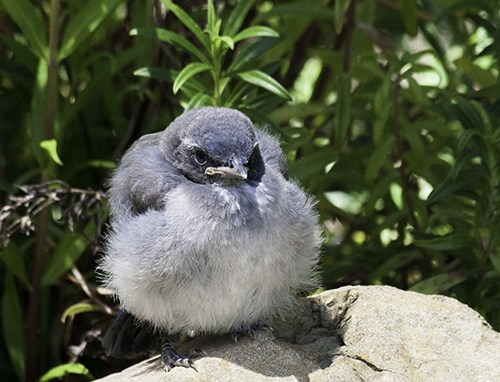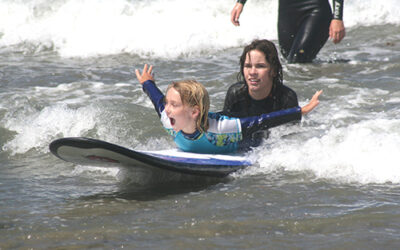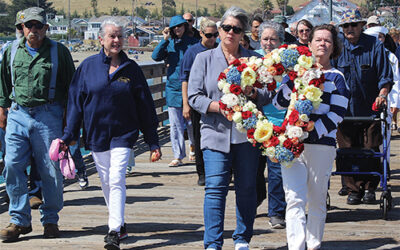A scrub Jay fledgling. Photo by Jeanette Stone
Midsummer is when many baby birds greet the world for the first time. Though some of them might look like they’ve flown the coop too early, most don’t need help. It’s one of the most common questions Pacific Wildlife Care (PWC) answers this time of year. You may see a bird that looks unable to fly well or seems lost or abandoned. Your first impulse may be to help the young bird, but in the great majority of cases the young bird doesn’t need help!
Here’s how to determine whether to take action:
Most of the baby birds people find are fledglings. These are young birds that have just left the nest, and can’t fly well yet (but are still under the care of their parents), and do not need our help. Fledglings are feathered and capable of hopping or flitting, with toes that can tightly grip a twig. These youngsters are generally adorable and fluffy, with a short stubby tail.
When fledglings leave their nest they rarely return, so even if you see the nest it’s not a good idea to put the bird back in—it will hop right back out! Usually there is no reason to intervene at all beyond putting the bird in a nearby bush and, most importantly: keeping pets indoors. The parents may be attending to four or five youngsters in scattered locations, but they will return to care for the one you have found. You can watch from a distance to make sure the parents are returning to care for the fledgling.
If the baby bird is sparsely feathered and not capable of hopping, walking, flitting it’s a nestling. If so, the nest is almost certainly close by. If you suspect the bird fell or was possibly cat/dog caught: bring to P.W.C. or, call the hotline at 805-543-WILD (9453).
If there is nothing wrong after the P.W.C. exam, the fledgling can be returned to its nest (parent birds do not recognize their young by smell so they will not abandon a baby even if it has been touched by humans). If the nest has been destroyed, a new one can be fashioned so the parents can continue to feed their offspring.
If you have found both parents dead, if the young bird is obviously injured or you can’t find the nest, your best act is to bring it to P.W.C immediately. Do not keep (it’s illegal). Do not feed the orphan. Put in a bag or box with air holes and keep in a quiet place for transport to the Rehabilitation Clinic.
For more information, go to pacificwildlifecare.org.



